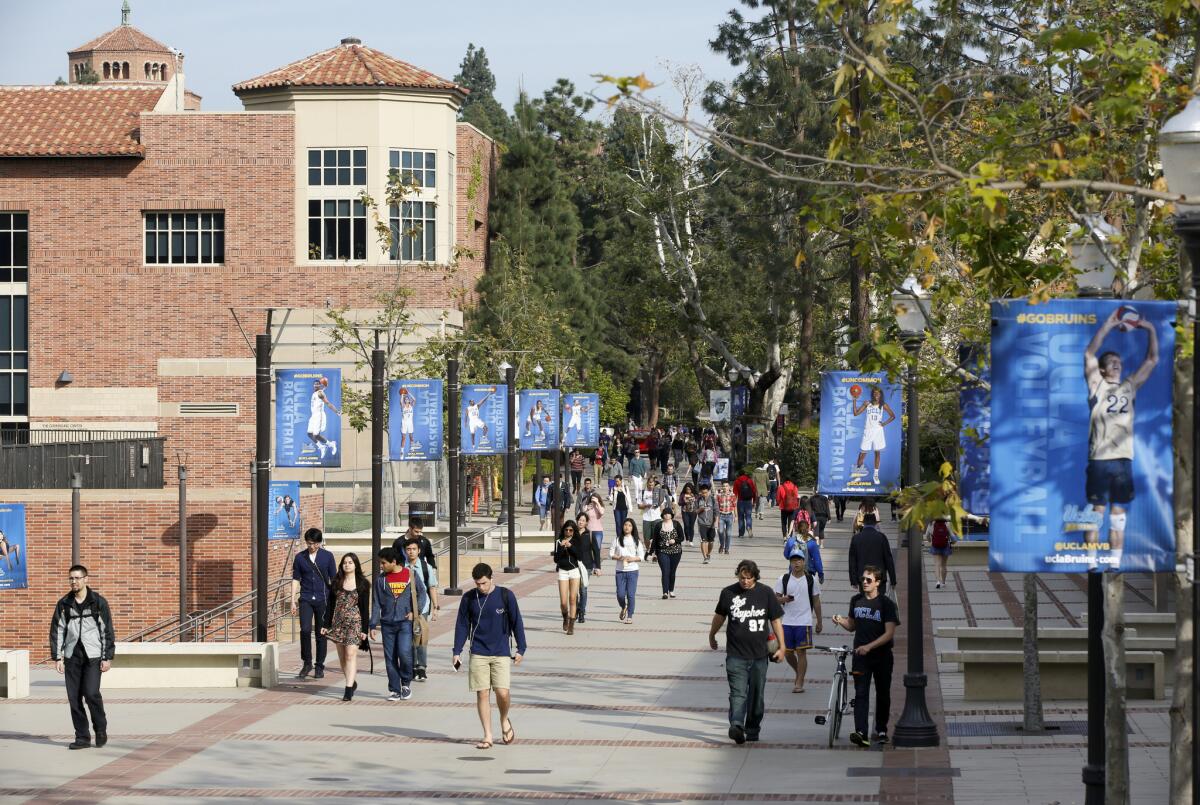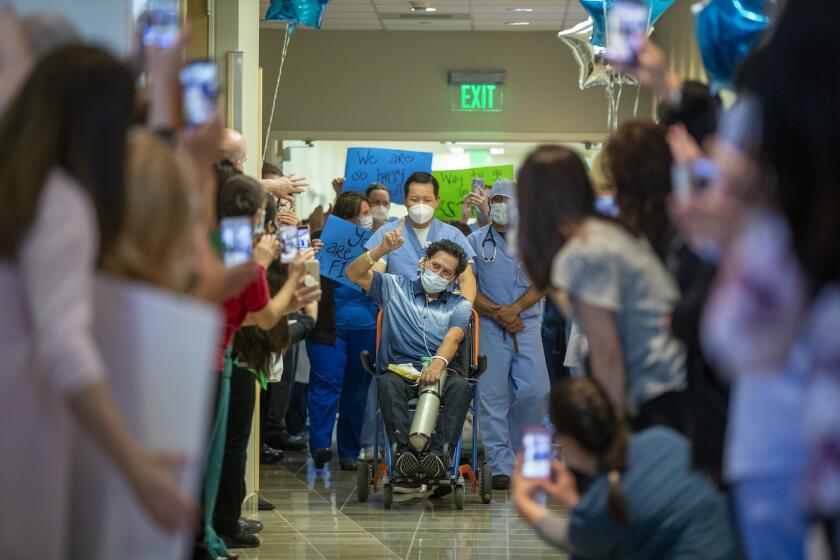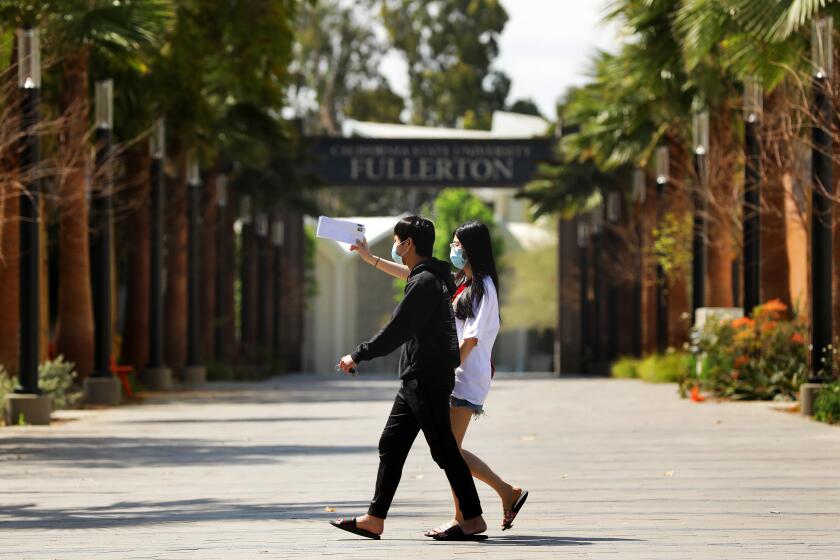Students sue UC, Cal State, demanding coronavirus-related refunds of campus fees

The University of California and California State University systems are being sued by students demanding refunds of some mandatory fees for services they allege they can no longer access after the coronavirus outbreak forced campuses to shutter classrooms and move to online learning.
The class-action lawsuits, filed Monday in federal courts in Los Angeles and Oakland, allege that UC and Cal State owe millions of dollars to more than 700,000 students they collectively serve who can no longer use health facilities, student centers and services funded by campus fees.
The campuses have shifted to online learning for most students since March and canceled large gatherings — performances, lectures and athletic events — because of the COVID-19 pandemic.
These are some of the unusual new scenes across the Southland during the coronavirus outbreak.
“It is improper for them to attempt to retain what amounts to many millions of dollars in aggregate in campus fees they collected from their students, even though they terminated the services that these fees covered,” Adam Levitt, one of the lawyers filing the suits, said in a statement. “A college education is already a monumental expense for students and their families, and to essentially offer them no relief on these material expenditures, particularly during a time when millions of Americans are struggling financially, is not only tone-deaf but unfair and unlawful.”
Cal State spokesman Michael Uhlenkamp said Tuesday that the 23-campus public university system will fight the lawsuit, which he said, “misstates the facts.” He said each of the campuses continued to provide instruction and services to students even after converting to online instruction. Counseling, advising, faculty office hours, disability student services and telehealth medical care are all being offered remotely, he said.
Uhlenkamp also said that Cal State is refunding some fees, as outlined in an interim policy adopted March 19.
“CSU will vigorously defend against this suit,” he said.
UC just learned of the lawsuit and had no comment at this time, spokeswoman Claire Doan said Tuesday.
The 10-campus UC system already has announced that it will not refund tuition or mandatory fees for 2020-21 even if instruction is delivered remotely. UC President Janet Napolitano has said the system had no plans to refund tuition for this spring.
The campus fees ranged from about $850 to more than $4,000 for Cal State students for the 2019-20 academic year. The UC basic student services fee was about $1,100, with fees related to specific campuses double that or more, according to the lawsuits.
Cal State Fullerton says that amid coronavirus uncertainty it will prepare to start the fall semester with online instruction. Will other campuses follow suit?
UC and Cal State students have started several petitions demanding partial refunds of tuition or campus fees. One of them, launched by UCLA student Michaella Baltazar, has drawn nearly 44,000 signatures.
“UC students and their families are already hurting from this crisis, and paying fees for amenities and activities that they will not have access to is just insult added to injury,” said another petition started by UC San Diego student Zaccary Bradt.
Levitt’s law firm and Matthew S. Miller LLC also have filed similar lawsuits against Arizona universities, Liberty University and Grand Canyon University, a Phoenix-based private university.
“We understand that these institutions face their own financial pressures and that this situation is not easy for anyone,” Miller said. “But that doesn’t make it right for CSU, UC or any of these schools to pass their losses on to students. Many of these universities have multi-million- or billion-dollar endowments to sustain them. Students and their families do not have the same resources.”
Cal State will not require SAT or ACT test scores for admissions for 2021-2022 applicants, following a similar decision by UC, other colleges.
More to Read
Sign up for Essential California
The most important California stories and recommendations in your inbox every morning.
You may occasionally receive promotional content from the Los Angeles Times.














